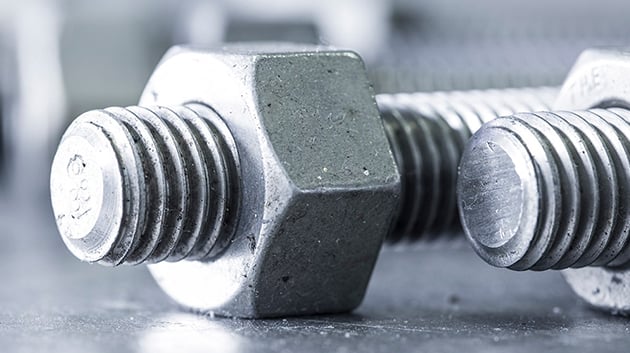볼트 체결 팁
Should I choose fine or coarse threaded bolts?
What is the difference between fine and coarse threaded bolts?
Bolts with coarse threads have a larger pitch (fewer threads per axial distance) compared to fine threads. A coarse threaded bolt is specified for most applications unless there is an overriding reason to use a fine threaded bolt (e.g. thorough thread adjustment is crucial for the application). Furthermore, fine thread fasteners are more difficult to obtain.
Negative sides of fine threaded fasteners:
- Fine threads are more susceptible to galling than coarse threads.
- They need longer thread engagements and are more prone to damage and thread fouling.
- They are also less suitable for high-speed assembly since they are more likely to seize when being tightened.
The potential benefits of fine threads are:
- Size for size, a fine thread is stronger than a coarse thread. This is both in tension (because of the larger stress area) and shear (because of their larger minor diameter).
- Because of the smaller pitch, they allow finer adjustments in applications that need such a feature.
- Fine threads can be more easily tapped into hard materials and thin-walled tubes.
- Fine threads require less torque to develop equivalent bolt preloads.
- Fine threads have less tendency to loosen since the thread incline is smaller and hence so is the off torque.







